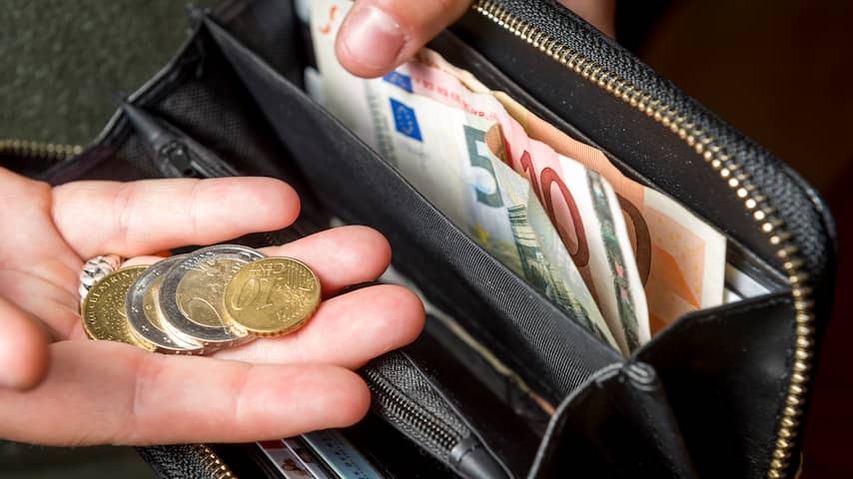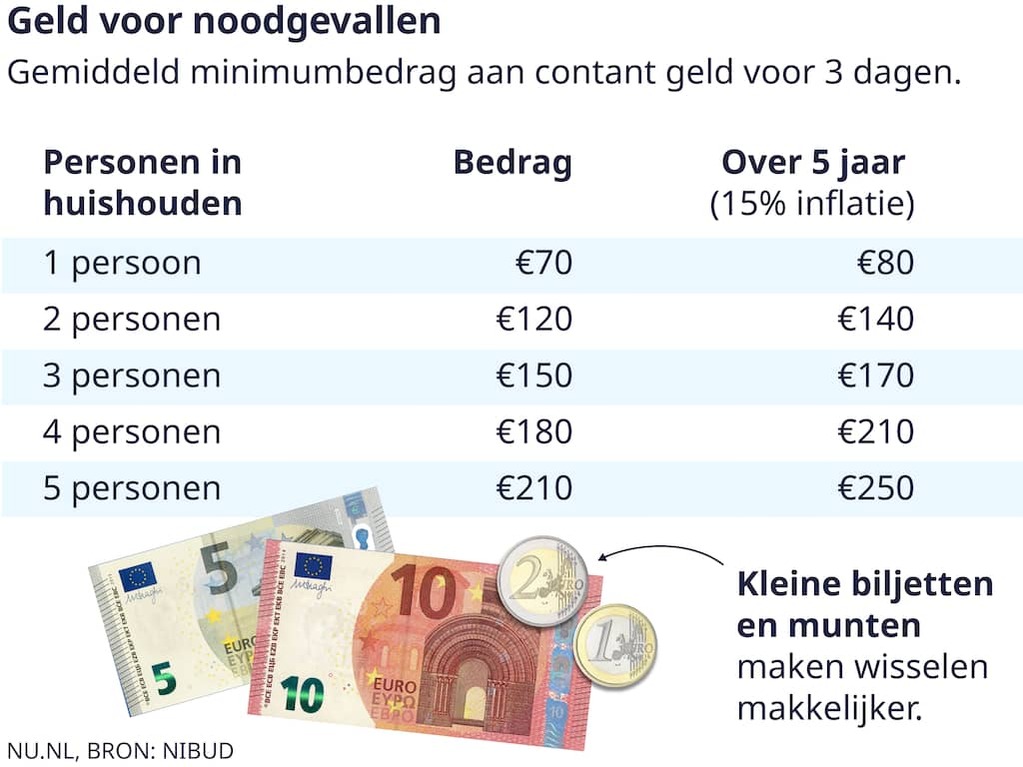
Dutch people should keep more cash at home for emergencies. Budget advisor Nibud recommends keeping at least 70 euros per adult and 30 euros per child. This allows you to buy necessary groceries for three days during a major PIN outage.
Nibud bases its advice on new research. That research advises every adult to keep 70 euros in cash at home. An additional 30 euros per child is added to that.
In a larger household, the amount per person is slightly smaller. This is because you usually get a discount for large quantities of products.
The advice applies for the next five years. That is why Nibud also calculated the amount that should be sufficient in 2030. Due to inflation, prices are expected to be 15 percent higher, as you can see in the diagram below. In 2030, you will have to have 80 euros in cash ready for an emergency instead of 70 euros.

Banks Already Encouraged Having More Cash at Home
Nibud carried out the research on behalf of the Societal Payment Traffic Consultation (MOB). The Dutch Central Bank (DNB) is chairman of the consultation platform. The Ministry of Finance and the Dutch Banking Association (NVB) are also members.
Due to increased geopolitical threats, banks already encouraged Dutch people to keep more cash at home at the end of last year. This comes in handy if there is a major PIN outage.
“We took several scenarios into account in the research,” says a spokesperson for the MOB. “For example, that the power has gone out, but that you still have access to the internet via your smartphone.” That is why the organization also advises installing a banking app on your smartphone, so that you can transfer money in emergency situations.
‘Adjust the Amount to Your Own Needs’
The 70 euros is intended for necessary groceries such as food, drinks, over-the-counter medicines and toilet paper. The MOB emphasizes that the amount does not take into account extra expenses, such as cigarettes and food for your pet.
“It is the minimum amount that you must get at home,” says the spokesperson. “Adjust the amount to your own needs and possibilities.”
According to the spokesperson, DNB has enough cash in circulation at banks and ATMs so that all Dutch people can withdraw the 70 euros. “Our advice is to build up the amount slowly. This way you can also get different notes and coins at home.”
The MOB does not advise keeping a 50 euro note and a 20 euro note in the kitchen drawer. Instead, it is best to keep the 70 euros in small notes and some coins. This way you can pay in stores that may have little or no change.
Entrepreneurs with a cash register must stock up on enough change for three days without electricity or internet, the MOB states. The platform also advises keeping a QR code for payment on hand in the event of emergencies.
The Dutch are champions of PIN payments in Europe, DNB reported at the beginning of this year. On average, Europeans pay with coins and notes half the time, but in the Netherlands this only happens in one in five payments. The MOB believes there is a risk in this. If the PIN network or the power fails, Dutch people will be hit extra hard.
The new advice is therefore part of the government campaign to make residents more resilient to crisis situations. This can be done, for example, by getting an emergency package with food and drinks at home.